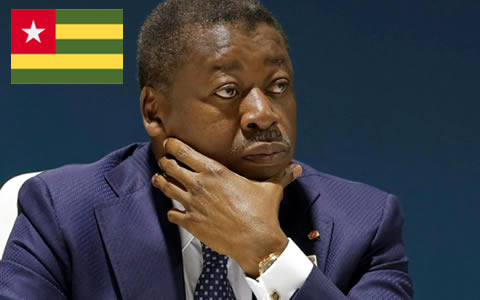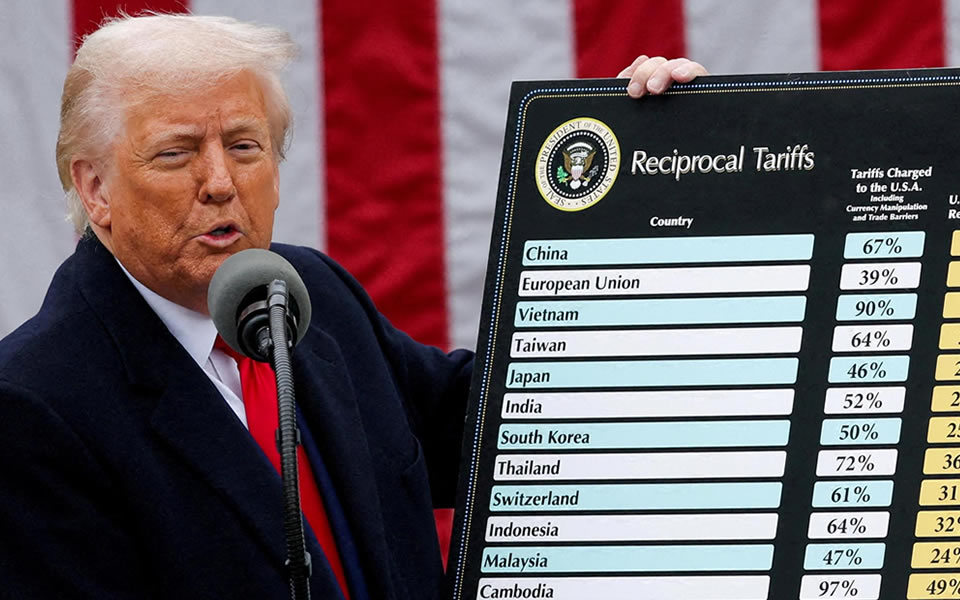
Strategic Warning: Threats along Ghana’s Northern Border
May 17, 2022
Cote d’Ivoire: Country Risk Assessment 2023 (Q2)
March 30, 2023SECURITY FORECAST FOR THE 2023 GENERAL ELECTIONS IN NIGERIA
Gauging what the security landscape in Nigeria will look like during general election period.
Introduction & Background
Nigeria is preparing for its 2023 general elections amidst significant socio-economic, political, and security challenges. The Presidential & National Assembly elections are set for 25th February 2023, and the Gubernatorial and State House of Assembly elections for 11th March 2023.
Security Forecast
A risk assessment was conducted the Intelligensis Africa Security Division, considering recent security incidents, governmental and non-governmental security activities, and strategic developments. The forecast includes all forms of violence and unrest, not limited to election-related incidents.
Risk Level Classification
Critical Risk States: Borno, Kaduna
Severe Risk States: Zamfara, Katsina, Niger, Anambra, Federal Capital Territory, Lagos, Imo, Delta
Map 1.1: Risk of Major Violence & Unrest in Nigeria by State.
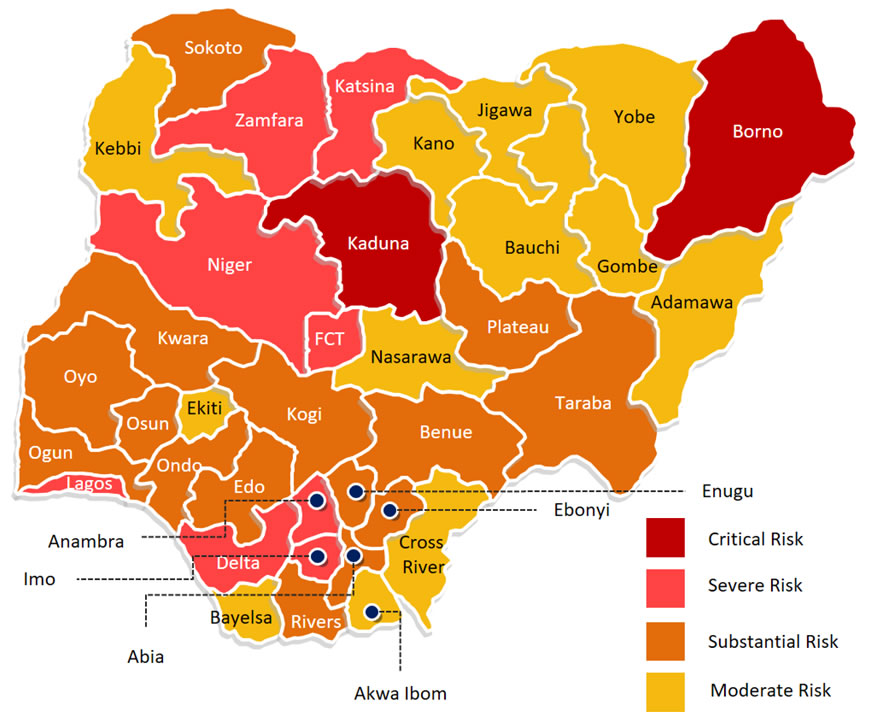
Map 1.2: The Topography of Security Incidents in States with Critical & Severe Risk of Widespread Violence & Unrest Based on Data from the Armed Conflict Location & Event Data (ACLED) between 1st January 2022 and 10th February 2023.
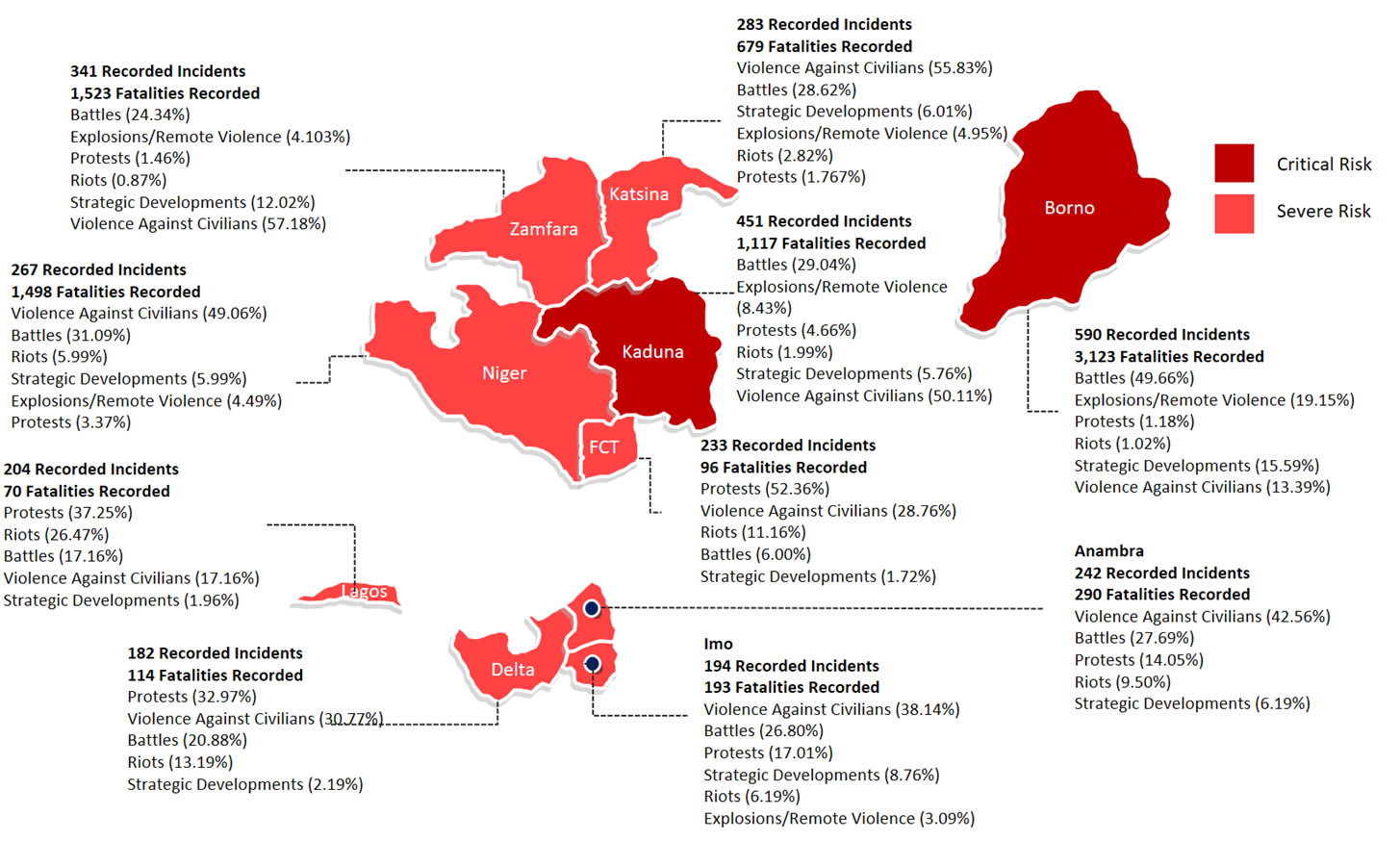
Implications for Residents
Residents in states with Critical, Severe & Substantial risk of violence and unrest should be vigilant, limit unnecessary travel, monitor news, and prepare for possible violence and unrest during the election period.
Security Incident Topography & Fatalities
Historical data indicates distinct patterns of security incidents and fatalities across states, with some states having disproportionately higher rates of violence and unrest.
Non-Governmental Security Actors
Various non-governmental security actors, including terrorist organizations and communal militias, have been active, contributing to the complex security landscape.
Map 1.3: Non-Governmental Security Actors in States with Critical & Severe Risk of Widespread Violence & Unrest.
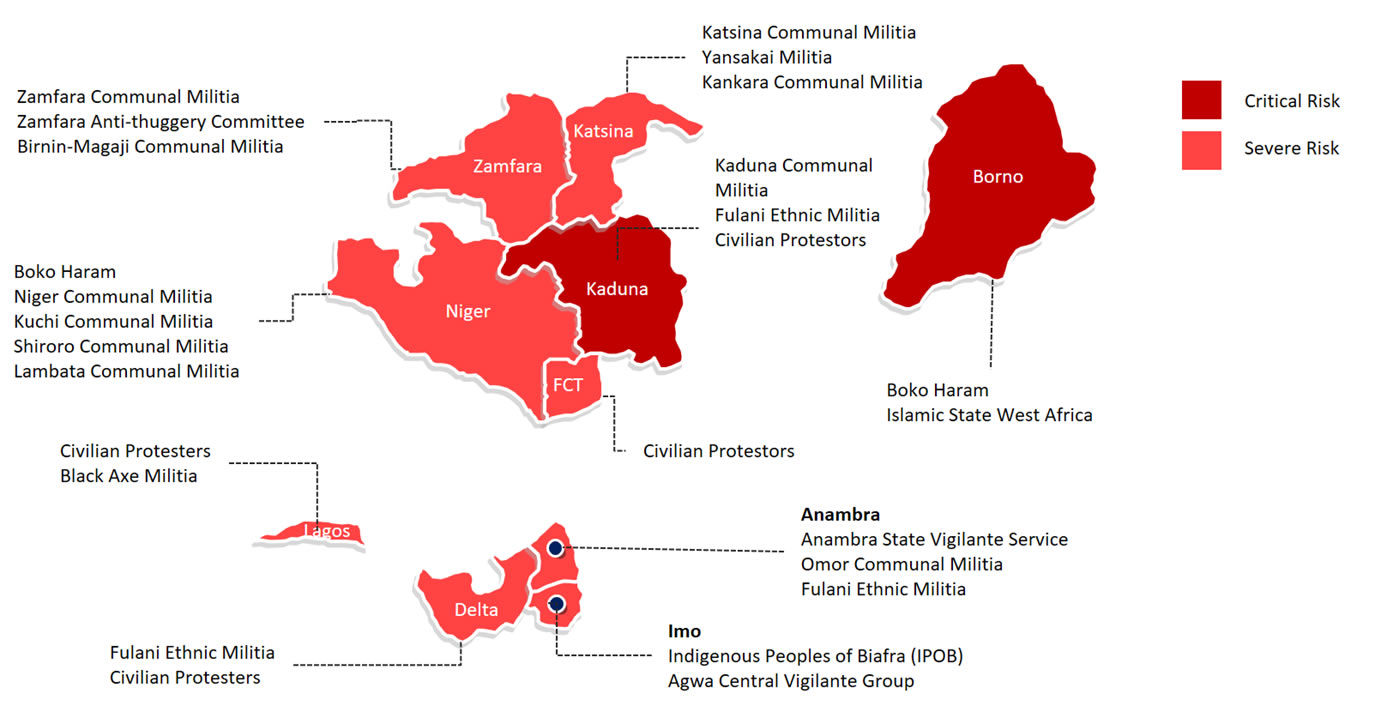
Potential Triggers of Unrest
The upcoming 2023 general elections in Nigeria are poised under a cloud of various socio-economic and political challenges, some of which could act as triggers for unrest and violence:
Inflation & High Unemployment
Nigeria is grappling with economic hardships such as a high inflation rate and a projected unemployment rate of 37% in 2023. Economic difficulties are exacerbated by global impacts such as the COVID-19 pandemic and geostrategic tensions, which may spill into political and security arenas.
Currency Shortage Issues
The government's decision to replace old Naira notes has led to cash shortages and significant public outrage, potentially heightening the risk of protests and riots during the elections.
Widespread Insecurity
Persistent activities of terrorist and insurgent groups, communal militias, and vigilantes have intensified the climate of insecurity. Certain areas in the country may be unusable for polling due to security concerns.
Religious & Ethnic Tensions
Ethnic and religious affiliations are potent influencers of voting patterns, and disputes related to the election outcomes could escalate into inter-ethnic and inter-religious violence and unrest.
Disinformation
There are concerns about large-scale disinformation activities, including paid social media influences, potentially polarizing voters and leading to violence.
Vote-Buying, Voter Suppression & Electoral Fraud
Practices such as vote-buying and voter suppression are prevalent, undermining the electoral process and possibly escalating tensions during the elections
The combination of these factors makes the electoral landscape in Nigeria particularly volatile. The government's ability to maintain peace and security while holding a general election is a crucial test, with broader implications for regional stability in West Africa and the African continent at large.
Conclusion
The 2023 elections pose a significant test to Nigeria’s stability, with various potential triggers of widespread violence and unrest identified. This could have broader implications, affecting regional security within West Africa and the wider African continent.


